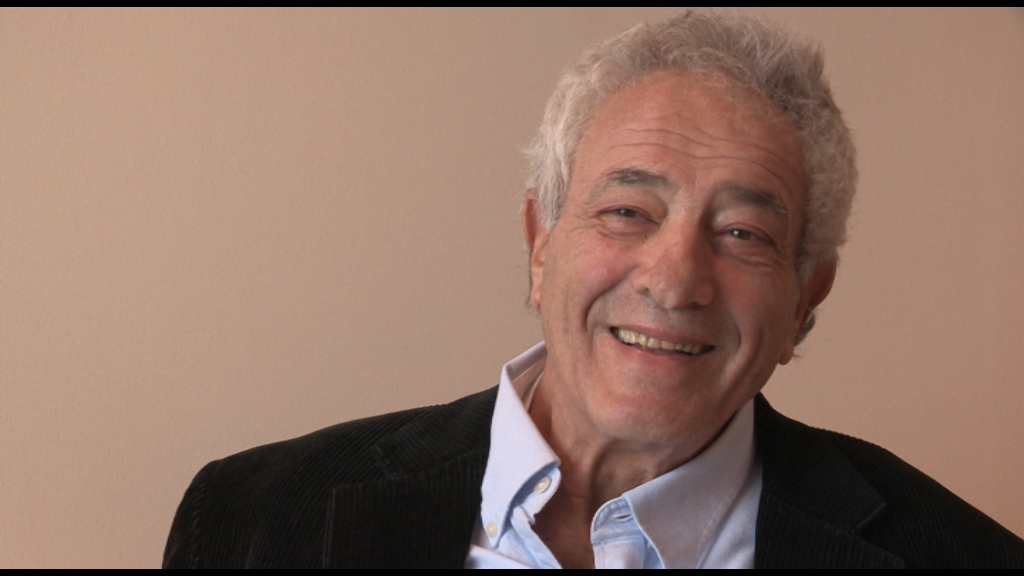NEXT STORY

Issuing of the fatwa against The Satanic Verses
RELATED STORIES

NEXT STORY

Issuing of the fatwa against The Satanic Verses
RELATED STORIES


|
Views | Duration | |
|---|---|---|---|
| 81. Quality cannot pay for itself | 15 | 03:53 | |
| 82. A student by day, a cab driver by night | 16 | 01:56 | |
| 83. The last ride | 42 | 06:01 | |
| 84. The dinner with Allen Ginsberg I wish I'd never had | 45 | 03:07 | |
| 85. CEO of Penguin Books: the early days | 29 | 04:02 | |
| 86. Why I published The War Between the Generals by David... | 25 | 04:17 | |
| 87. Analysis of the fallout of publishing The Satanic... | 19 | 06:52 | |
| 88. The Satanic Verses | 26 | 02:47 | |
| 89. Underestimating the reaction to The Satanic Verses | 23 | 03:51 | |
| 90. Rousing the ire of the ayatollah | 18 | 04:32 |


Then, later, I think because Salman lived in England, in Britain, we decided to publish the book first in Britain and then later in the United States. I think it's hard - it's many years since then - to remember what went into the decision-making, but very often, in cases like this, we, a publisher, look at where the initial impact of a book will be greatest, because one can use that impact in other countries and other markets, and we thought Britain was the place where Salman was best known, would get, therefore, the best reviews, and we could use that publicity attention in the United States and other countries later.
That isn't actually what happened. The book was published in Britain first, I think to generally good reviews; I haven't made a review of the reviews. But I think, somewhat curiously, it was even reviewed in Tehran, in an English-language newspaper - English language yea, yes, but in Tehran. Presumably, the people who worked on that newspaper knew something about the religio-political situation there, particularly as it was backgrounded by the Iran-Iraq War. And the review was very favourable. So, again, there was no reason for us to postpone or not publish the book.
And we did publish it… we did publish the book in Britain. Then, some months later - I don't know if it was as long as six months, but anybody can look this up - we proposed to publish the book in the United States. It was announced. And that's when all hell broke loose.
I don't think the hell broke loose first in the United States, although it was closer to the time of the American publication. The book had already been published in England, to not much controversy. And little did we imagine that the US publication would engender much more.
Well, it did. But not because of anything American, but because the ayatollah chose, for whatever his reasons were, to speak out at a time when the question of the US publication was happening. And I think many people believe - and I'll certainly mention it now on tape - that the ayatollah used the book and his superior religiosity, evidenced by the fatwa, to rekindle his declining influence at that moment in respect of the Iran-Iraq war. I've already said he couldn't read [the] book in English.
Peter Mayer (1936-2018) was an American independent publisher who was president of The Overlook Press/Peter Mayer Publishers, Inc, a New York-based publishing company he founded with his father in 1971. At the time of Overlook's founding, Mayer was head of Avon Books, a large New York-based paperback publisher. There, he successfully launched the trade paperback as a viable alternative to mass market and hardcover formats. From 1978 to 1996 he was CEO of Penguin Books, where he introduced a flexible style in editorial, marketing, and production. More recently, Mayer had financially revived both Ardis, a publisher of Russian literature in English, and Duckworth, an independent publishing house in the UK.
Title: Rousing the ire of the ayatollah
Listeners: Christopher Sykes
Christopher Sykes is an independent documentary producer who has made a number of films about science and scientists for BBC TV, Channel Four, and PBS.
Tags: Tehran, Iran-Iraq war, Salman Rushdie
Duration: 4 minutes, 32 seconds
Date story recorded: September 2014-January 2015
Date story went live: 12 November 2015